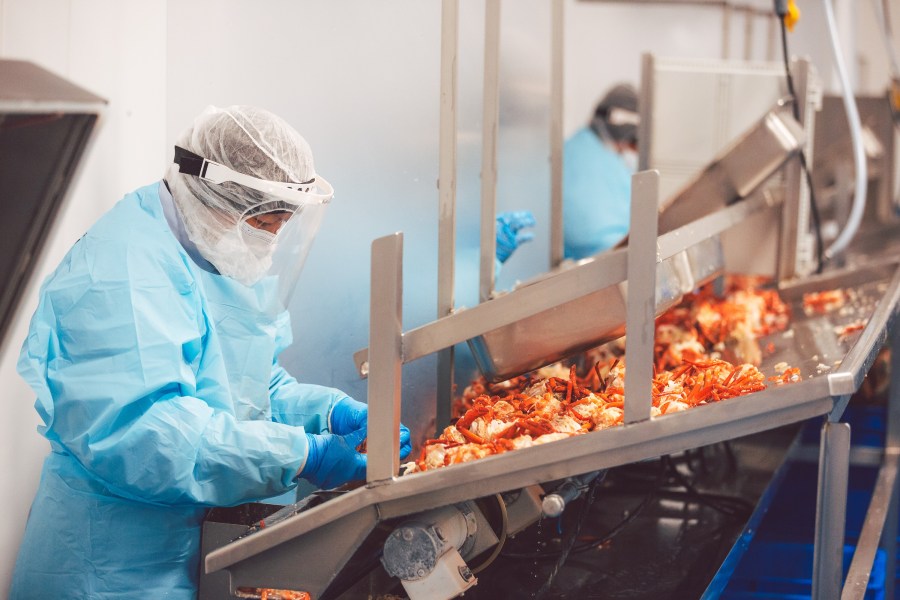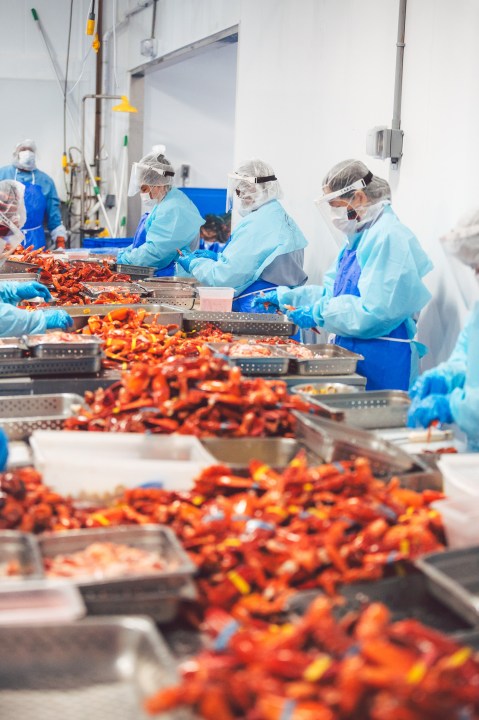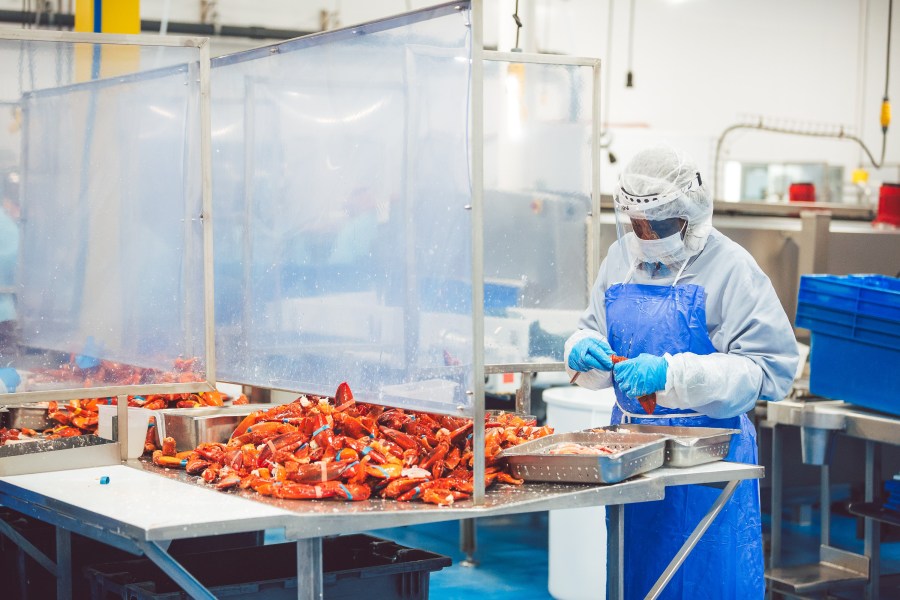Could lobsters be the key to getting migrants back to work?
- 3.3 million immigrants will come to the U.S. in 2024
- U.S. economy will grow by $7 trillion by 2034
- 303,000 U.S. jobs were created in March

Of the 100 people working in the production portion of Luke’s Lobster, 75 are immigrants. (Photo courtesy of Luke’s Lobster)
(NewsNation) — Only a fraction of the hundreds of thousands of migrants and asylum-seekers who have crossed the U.S. are legally qualified to work when they arrive, creating anxiety for newcomers looking for sustainable employment.
But more American companies — including a Maine lobster outfit — are working with newcomers who do become authorized to work, providing support or jobs for migrants while filling out their labor forces in the process.
“Work authorization is just something that as Americans we sort of take for granted: the right to work and feed our families,” Sarah Flagel, a Chicago-based Asylum Legal Clinic Managing Attorney at World Relief, told NewsNation. “And that is definitely not something this population takes for granted.”
As the majority of new arrivals are waiting for work authorizations, officials in sanctuary cities are offering clinics to make more asylum-seekers legal to work.
But how to get more migrants to work both legally and faster remains one of the main issues at the heart of America’s ongoing migrant crisis.
Migrant workers take to the sea
Luke’s Lobster in Maine has been hiring immigrants to help with its lobster processing operation since 2013, four years after the company started as a single restaurant. Today, it has 31 locations around the U.S., Singapore and Japan.
Immigrants from places like Cambodia and Latin America have traditionally played a key role in the lobstering business in Maine, according to Luke’s co-founder Ben Conniff.




For some, seafood processing has been the perfect entry-level job as migrants navigate a new life in the U.S. Others end up staying with companies like Luke’s for decades.
Conniff said that making sure workers are authorized to work in the U.S. is just part of the onboarding process at Luke’s. Potential employees are required to provide the necessary paperwork to human resources to prove that they are legal to work in the United States before they join the company’s payroll.
The company hasn’t received any backlash or resentment from local residents about its hiring practices, Conniff said.
“If anything, I think we’ve gotten appreciation because people in the lobster industry understand that without a team to process the lobster, a lot of that lobster would go unsold,” Conniff told NewsNation. “Everybody gets harmed if the market for the lobster gets harmed, and if there aren’t people who are doing the work of processing, then the lobster market really gets harmed.”
On-the-job training
In 2022, Luke’s introduced a program called “Lift All Boats,” which provides underserved populations with on-the-job training. The popular program mainly works with young people, some of whom start the program with a fear of water and boats and end up falling in love with lobstering, Conniff said.
The program has become so popular among young people, including migrants, that there are more applicants to get into the program than there are spots, Conniff said. Students in the program are trained over the summer and slowly brought along to teach them all aspects of lobstering.
No matter where newcomers — including those who have arrived from the U.S. southern border since 2022 — end up within the company, they serve a big purpose at Luke’s.
Over time, Conniff says he has come to learn some of the harrowing migrant journeys these people have taken to arrive in the States, along with the delays many have endured just to gain work authorizations.
“We’re not hiring people to do favors for them,” Conniff said. “These folks are the backbone of the lobster industry, and our company couldn’t exist without them.”
Conniff told NewsNation that among Luke’s production business, 75 of the 100 people working on that part of the operation are immigrants.
Partnering for solutions
Among the largest challenges facing both migrants and companies hoping to provide jobs to immigrants is the issue of work authorization. Even those new arrivals who obtain status as asylum-seekers must wait six months before they can legally work in the U.S.
Most migrants must wait for immigration hearings, which in many cases can take three to four years, placing them in limbo when it comes to making ends meet while they wait.
A U.S. Department of Labor spokesperson told NewsNation that partnerships between federal, state, and local agencies are critical to support newcomers and all workers in building pathways to good jobs.
In January, Maine Gov. Janet Mills announced plans to establish an “Office of New Americans” to address the state’s shortage of workers in professions like health care, education and construction, the governor said.
The new office will be charged with “welcoming and supporting immigrants to strengthen Maine’s workforce,” enhancing the state’s communities and building a strong and inclusive economy.
Elsewhere, in Denver, city officials recently announced an Asylum Seekers Program that helps to fast-track things like work authorizations. Nearly 1,600 migrants have become legal to work since arriving.
“That happens as a result of either a lack of work authorization or a lack of certifications or available work,” Jon Ewing, the spokesman for the Denver Department of Human Services, told NewsNation.
In Chicago, the local effort involves organizations such as World Relief, which is among the national not-for-profit humanitarian groups working to get more immigrants legally set up to work, Flagel said.
Organizations like World Relief conduct workshops to provide new arrivals with as much information about a complicated process as possible.
“(Information) means power, it means access to resources, it means access to sustainability and keeping your family together, and the freedom that comes with economic stability that is in their near future if they can just get a work permit,” Flagel said.
As of April 12, a partnership between the Illinois Department of Human Services and local not-for-profits led to nearly 6,000 work permit applications being submitted, an agency spokeswoman told NewsNation.









